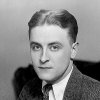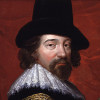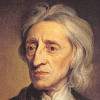“ For a man may prefer what he can do, to what he cannot do ”
John Locke, An Essay Concerning Human Understanding (1689). copy citation
| Author | John Locke |
|---|---|
| Source | An Essay Concerning Human Understanding |
| Topic | |
| Date | 1689 |
| Language | English |
| Reference | |
| Note | |
| Weblink | http://www.gutenberg.org/files/10615/10615-h/10615-h.htm |
Context
“In all these there is want of freedom; though the sitting still, even of a paralytic, whilst he prefers it to a removal, is truly voluntary. Voluntary, then, is not opposed to necessary but to involuntary. For a man may prefer what he can do, to what he cannot do; the state he is in, to its absence or change; though necessity has made it in itself unalterable.
12. Liberty, what.
As it is in the motions of the body, so it is in the thoughts of our minds: where any one is such, that we have power to take it up, or lay it by, according to the preference of the mind, there we are at liberty.”
source



